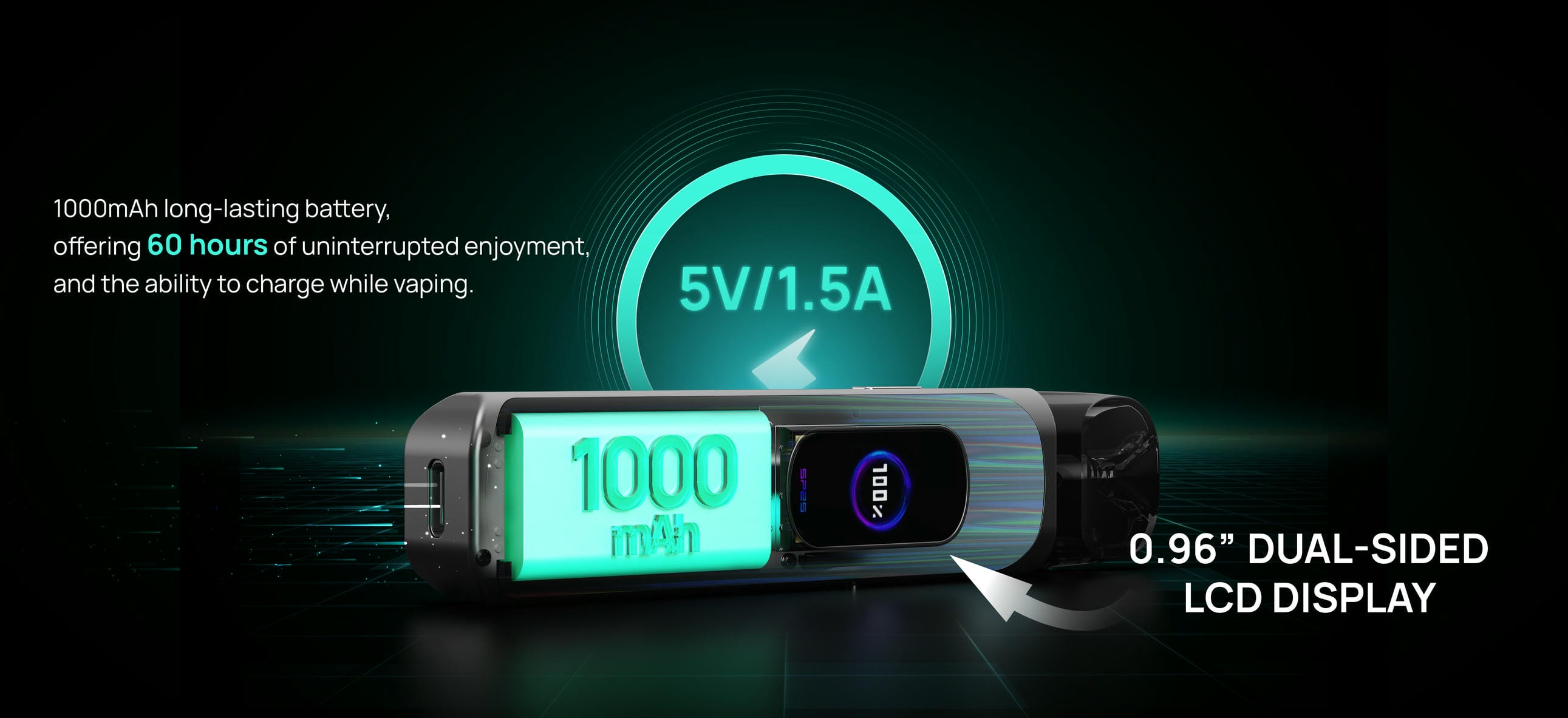Every year, over 8 million deaths worldwide are attributed to tobacco-related diseases. Smoking during pregnancy is directly linked to high risks such as premature birth and low birth weight. Traditional nicotine replacement therapy (NRT) has been widely used for smoking cessation but suffers from low adherence—with a success rate of only 19.4%—and noticeable side effects like nausea and headaches. However, the latest research from the University at Buffalo reveals that pregnant women who used vapes before pregnancy achieved a smoking cessation rate of 53.1% during later pregnancy stages, offering a promising new direction for maternal health management.
The Importance of Smoking Cessation During Pregnancy and the Limitations of Existing Methods
Smoking during pregnancy poses significant risks, including premature birth and low birth weight, which endanger both maternal and infant health. Globally, tobacco-related diseases claim more than 8 million lives each year. Although nicotine replacement therapy (NRT) is commonly used, its low adherence and associated side effects—such as nausea, headaches, and sleep disturbances—highlight the urgent need for safer and more effective cessation strategies for pregnant women.

The University at Buffalo Study Overview
Background and Methodology
The University at Buffalo conducted an observational study using data from the Pregnancy Risk Assessment Monitoring System (PRAMS) in the United States, collected between 2016 and 2020. The study analyzed data from 1,329 pregnant women, comparing the effectiveness of vape use versus NRT for smoking cessation during pregnancy. Notably, the study focused on women who began using vapes before pregnancy to determine if early adoption contributed to higher cessation success rates.
Core Data Comparison
Indicator
|
Vape Group (Pre-Pregnancy Use)
|
NRT Group
|
Smoking Cessation Rate (Late Pregnancy)
|
53.1%
|
19.4%
|
Low Birth Weight Incidence
|
9.6%
|
14.8%
|
Additional supporting research includes:
• Queen Mary University, London (UK): Findings indicate that the vape group achieved a 6.8% quit rate, significantly higher than the 4.4% observed in the NRT group, along with a reduced risk of low birth weight.
• US FDA-Supported Study: Data shows that vape-assisted cessation has a success rate of 39.1%, compared to 20.8% for other methods, with a noted decrease in long-term dependency.
• University of Catania, Italy: Research found that switching to vapes resulted in a 50% reduction in COPD exacerbation and a 1.5% improvement in cardiovascular function.
These data points support the potential of vape use as an effective tool in smoking cessation, especially for maternal health management.

Analysis of the Results and Possible Explanations
Comparison Between Vapes and Nicotine Replacement Therapy
The University at Buffalo study suggests that pregnant women who used vapes before pregnancy experienced significantly higher cessation rates during later pregnancy compared to those using NRT. Experts propose several factors that might contribute to this phenomenon:
Behavioral Substitution:
Vapes can mimic hand-to-mouth actions and provide the psychological satisfaction associated with traditional smoking, helping to alleviate withdrawal anxiety.
Maintenance of Social Interaction:
Vape use may allow individuals to continue social interactions without the complete isolation often experienced during smoking cessation.
Fewer Side Effects:
Unlike NRT, vapes typically cause fewer side effects such as nausea, headaches, and sleep disturbances, potentially improving adherence and comfort during the quitting process.
These factors combined may explain the observed higher success rates in smoking cessation among women who adopted vapes before pregnancy.

Expert Cautions and Safety Recommendations for quitting smoking
While the data from various studies points to the potential benefits of vapes in aiding smoking cessation, it is important to note:
Preliminary Findings:
The research currently shows an association rather than a confirmed cause-and-effect relationship. Other confounding factors, such as smoking intensity and individual health conditions, may also influence the results.
Safety Concerns:
The long-term safety of vape use, particularly during pregnancy, has not been fully established. Pregnant women and those planning pregnancy should always consult healthcare professionals before considering any smoking cessation method.
Disclaimer: This article is based on current research data and is not intended as medical advice. Pregnant women and prospective mothers should consult their healthcare providers before making any health-related decisions.
SP2S Vapes: A Technology-Driven, Safety-Focused Choice
As a leading brand in the vape industry, SP2S is dedicated to developing high-quality, innovative products that prioritize both user experience and safety. We offer a wide range of premium vape devices, e-liquids, and accessories to suit diverse user needs. Whether you're looking for sleek pod systems or robust vape kits, SP2S provides reliable solutions backed by strict quality control.
To serve our global audience, SP2S supports international shipping, making it easy for vape users around the world to access authentic products with confidence. We’re committed not only to product excellence but also to professional after-sales support—ensuring a safe, enjoyable, and worry-free vaping experience.
It should be noted that SP2S products are intended solely for supporting adult smoking cessation and are not suitable for pregnant women or other vulnerable groups. Consumers are advised to read product instructions carefully and seek professional guidance as needed.
Choose SP2S and embark on a journey where quality meets trust.

Conclusion
Data from the University at Buffalo and other international studies provide new insights into the potential role of vapes in smoking cessation, especially among women who use them before pregnancy. The significantly higher cessation rates observed in these groups suggest that vapes may offer an effective alternative to traditional methods such as NRT. However, due to the complexity of the factors involved and the preliminary nature of the research, healthcare professionals' advice remains paramount in choosing the safest cessation method. For those focused on smoking cessation and health management, the emerging evidence on vape effectiveness presents intriguing possibilities for future approaches.





Leave A Comment
Your email address will not be published.